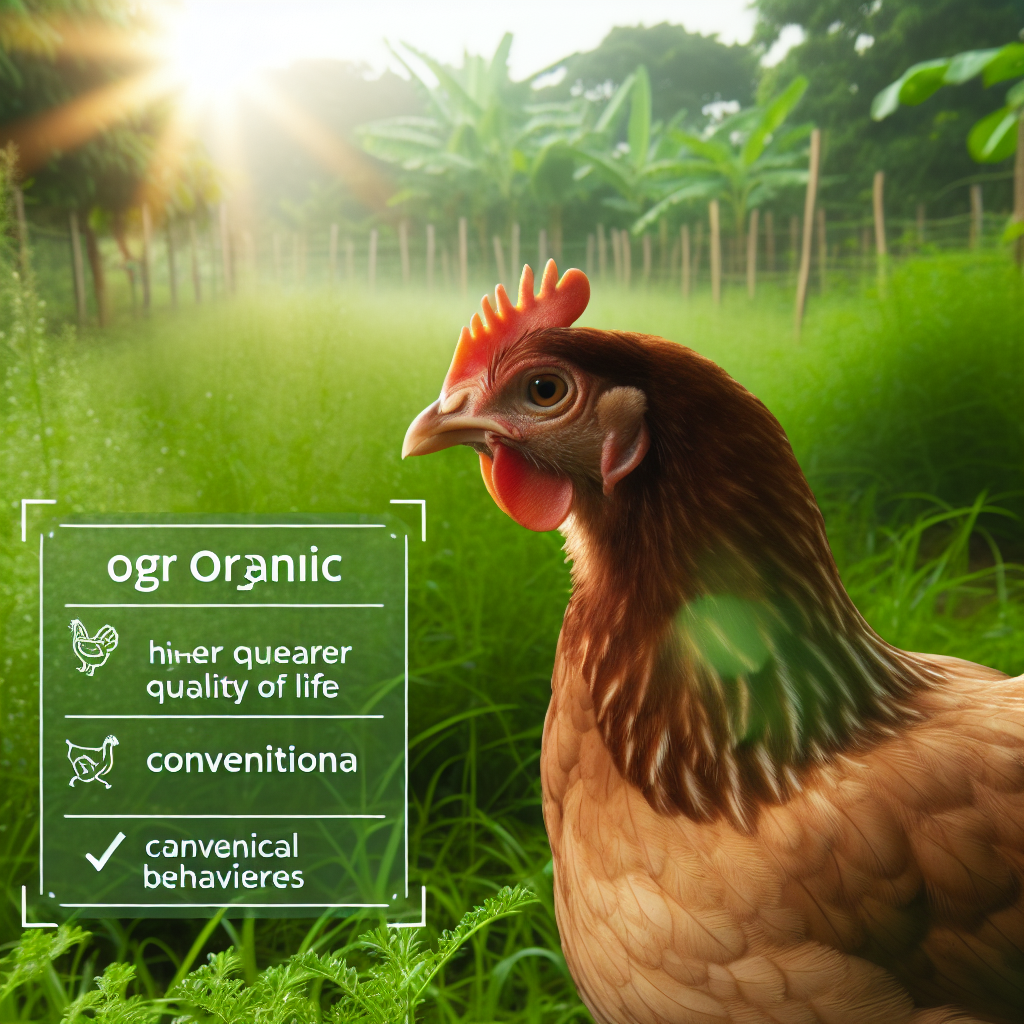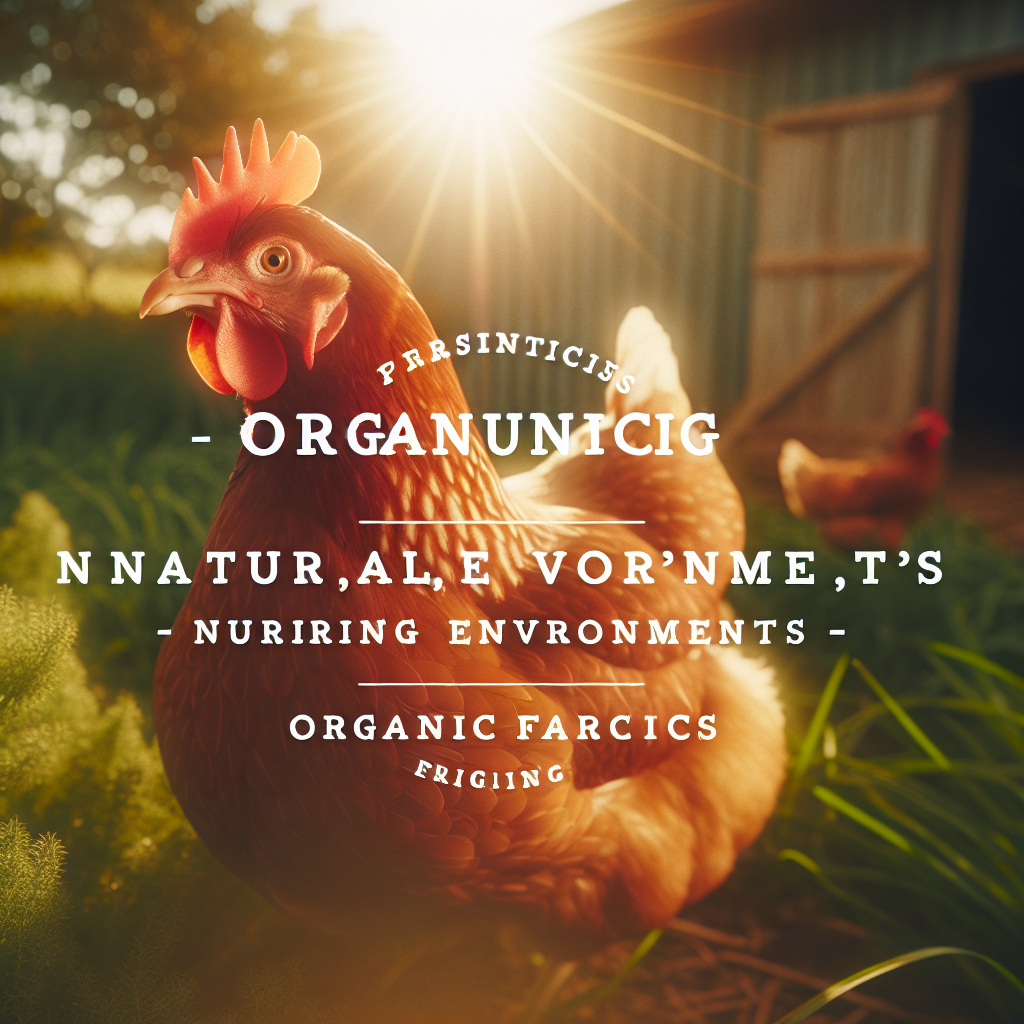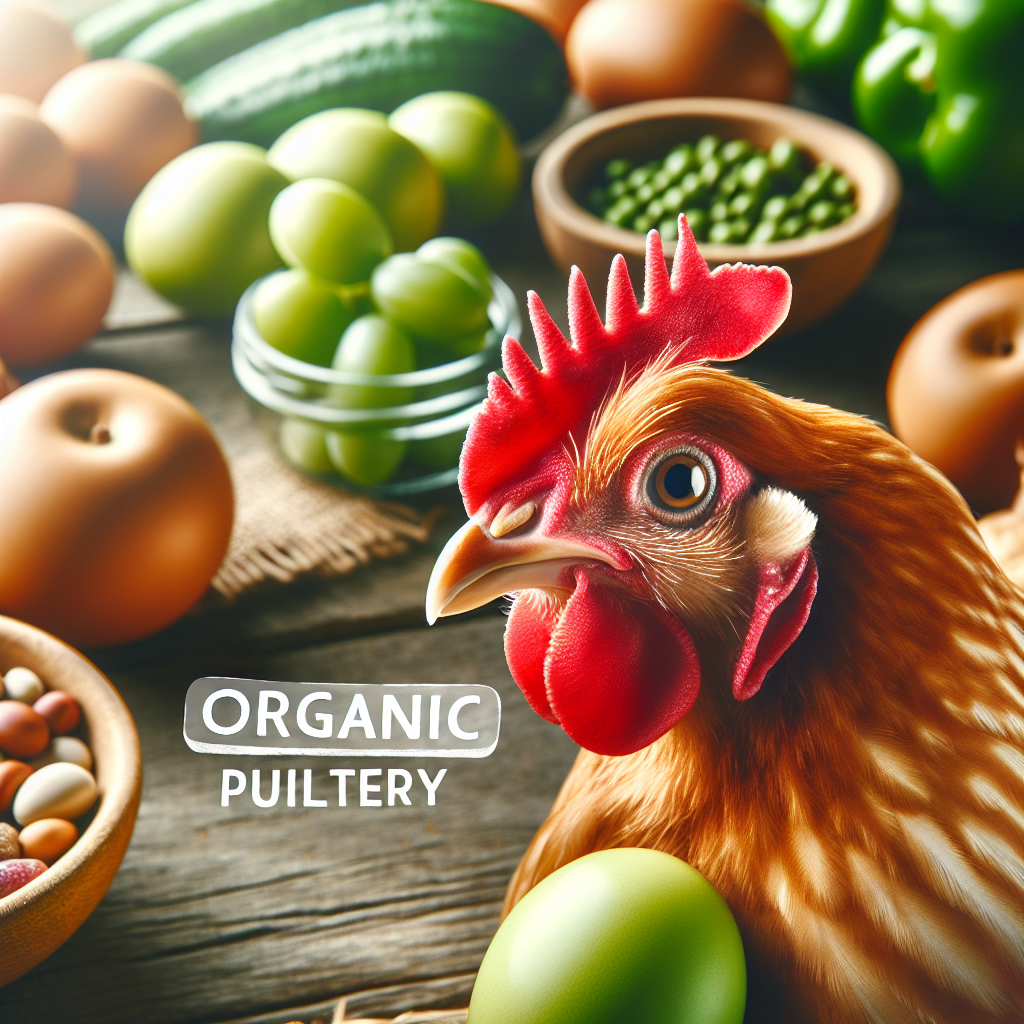Are you a farmer wanting to promote and market your eggs or meat as organic products? Look no further! In this article, we will explore effective strategies and tips to help you showcase the organic qualities of your products and attract customers who prioritize sustainable and healthy choices. From highlighting your farming practices to utilizing digital platforms for promotion, we have got you covered. Get ready to take your organic products to new heights!
Build a strong organic farming foundation
Understand the principles of organic farming
To successfully promote and market your eggs or meat as organic products, it’s crucial to have a solid understanding of the principles of organic farming. Organic farming is a holistic approach that focuses on sustainable practices and the preservation of natural resources. It avoids the use of synthetic chemicals, genetically modified organisms (GMOs), and antibiotics. Familiarize yourself with the regulations and standards set by organic certification bodies, such as the U.S. Department of Agriculture’s National Organic Program (NOP) or the European Union’s Organic Regulation.
Research and implement organic farming techniques
Once you have a strong understanding of organic farming principles, it’s time to research and implement organic farming techniques. Start by analyzing the specific requirements of your livestock or poultry, and explore options for organic feed and forage. Ensure that all areas of production, including housing, waste management, and pest control, adhere to organic standards. Implementing organic farming techniques will not only ensure the health and welfare of your animals but also contribute to the overall quality and integrity of your organic products.
Obtain organic certification
To establish credibility and gain the trust of your target market, obtaining organic certification is essential. Organic certification verifies that your products comply with all organic regulations and standards. Contact your local organic certification body to understand the process and requirements for certification. This usually involves an initial application, an on-site inspection, and periodic audits. Displaying the organic certification logo on your packaging and promotional materials will reassure consumers that your eggs or meat are produced using organic practices.
Develop a unique selling proposition
Identify your target market
To effectively promote your organic eggs or meat, it’s crucial to identify your target market. Conduct market research to understand the preferences and needs of your potential customers. This research should include factors such as age, lifestyle, location, and other demographics. Identifying your target market will allow you to tailor your marketing efforts to their specific desires and effectively communicate the benefits of your organic products.
Differentiate your organic products
In a competitive market, it’s essential to differentiate your organic products from others. Highlight the unique qualities and benefits of your eggs or meat that set them apart from conventional or other organic options. Whether it’s the superior taste, animal welfare standards, or environmental impact, make sure to emphasize these distinguishing factors in your marketing materials and communication with customers. By differentiating your products, you can attract customers who value the specific qualities that your organic farming practices offer.
Emphasize the benefits of organic farming
To effectively market your organic eggs or meat, it’s crucial to emphasize the benefits of organic farming to your target market. Organic products are not only healthier and free from harmful chemicals, but they also contribute to environmental sustainability and animal welfare. Highlight the reduced pesticide and antibiotic residues, the improved nutritional content, and the positive impact on soil fertility. By emphasizing these benefits, you can connect with consumers who prioritize their health, the environment, and ethical farming practices.
Create a compelling brand identity
Design a memorable logo and packaging
To establish a strong brand for your organic eggs or meat, start by designing a memorable logo and packaging. Your logo should be visually appealing, represent your brand’s values, and resonate with your target market. Consider incorporating symbols or imagery that evoke the principles of organic farming, such as nature, sustainability, or animal welfare. Additionally, design packaging that is eco-friendly and clearly communicates your brand’s commitment to organic practices. Eye-catching packaging will attract the attention of consumers and make your organic products stand out on store shelves.
Craft a compelling brand story
A compelling brand story is instrumental in connecting with your customers on a deeper level. Share the history, values, and mission of your organic farm, along with the personal journey that led you to embrace organic farming practices. Highlight the love and passion you have for providing high-quality organic eggs or meat to your customers. A well-crafted brand story will create an emotional connection, fostering trust and loyalty among consumers who appreciate the transparency and authenticity of your organic farming practices.
Consistently communicate your brand values
Consistency is key when communicating your brand values to your target market. Ensure that every touchpoint with your customers, including your website, social media posts, and packaging, consistently reflects your brand’s core values and commitment to organic farming. Use a friendly, informative tone to reinforce your brand’s message and build trust with your audience. By consistently communicating your brand values, you will create a strong brand identity that resonates with consumers and sets you apart from competitors.
Leverage online marketing strategies
Build an informative and user-friendly website
In today’s digital age, having a professional and informative website is crucial for promoting your organic eggs or meat. Your website should provide comprehensive information about your organic farming practices, the benefits of your products, and where they can be purchased. Ensure that your website is visually appealing, easy to navigate, and optimized for mobile devices. Include high-quality images of your farm, animals, and products to evoke a connection with visitors. Offering online ordering and delivery options can also enhance customer convenience and accessibility.
Optimize your website for SEO
To maximize your online visibility and attract organic traffic to your website, it’s important to optimize it for search engines. Research relevant keywords related to organic farming, eggs, or meat, and incorporate them naturally into your website’s content, headings, and meta tags. Create informative blog posts or articles that provide valuable information to your target market, further demonstrating your expertise in organic farming. Optimizing your website for SEO will increase its chances of appearing in search engine results, driving more organic traffic to your site.
Engage with customers through social media
Social media platforms provide excellent opportunities to engage with your customers and promote your organic eggs or meat. Identify the platforms that resonate with your target market and establish a presence there. Share visually appealing content, such as photos and videos of your farm, product recipes, and educational posts about organic farming. Encourage customer engagement by asking questions, responding to comments and messages promptly, and hosting contests or giveaways. Building a strong online community will not only increase brand awareness but also foster trust and loyalty among your customers.
Utilize traditional marketing tactics
Print advertising in relevant publications
While online marketing is essential, traditional marketing tactics can still be effective in promoting your organic eggs or meat. Identify relevant publications, such as local newspapers, magazines, or agricultural journals, and place print advertisements. Highlight the unique qualities and benefits of your organic products, and include your contact information and website. By targeting audiences who read these publications, you can reach potential customers who may be interested in purchasing organic food products.
Participate in local events and farmer’s markets
Participating in local events and farmer’s markets is a great way to promote your organic products directly to consumers. Set up a booth or stall and engage with visitors, providing them with information about your farm and organic farming practices. Offer samples of your eggs or meat, allowing potential customers to experience the quality firsthand. Network with other local farmers and producers, exchanging insights and potentially collaborating on joint marketing efforts. By participating in these events, you can build awareness, generate sales, and establish personal connections with your customer base.
Collaborate with like-minded businesses
Collaborating with like-minded businesses can amplify your reach and create mutually beneficial partnerships. Identify local businesses that align with your organic farming values, such as health food stores, restaurants, or eco-conscious retailers. Explore opportunities for cross-promotion or joint marketing campaigns. For example, you could provide your organic eggs or meat to a local restaurant in exchange for their endorsement or include their eco-friendly products in your farm’s gift baskets. Collaborations allow you to tap into new customer bases and reinforce your commitment to organic farming.
Implement word-of-mouth marketing
Encourage customer reviews and testimonials
Word-of-mouth remains one of the most powerful marketing tools, so encourage your customers to share their positive experiences with your organic eggs or meat. Request reviews and testimonials from satisfied customers and display them prominently on your website and social media platforms. Positive reviews and testimonials serve as social proof and can greatly influence potential customers’ purchasing decisions. You can incentivize customers to leave reviews by offering discounts on future purchases or hosting exclusive events for loyal customers.
Offer referral incentives
In addition to customer reviews, incentivize your existing customers to refer their friends and family to your organic products. Offer referral incentives such as discounts, rewards, or freebies for each successful referral. Implement a tracking system to accurately credit customer referrals. By turning your satisfied customers into brand ambassadors, you can tap into their networks and benefit from word-of-mouth marketing that drives new customers to your organic products.
Develop strong relationships with customers
Building and maintaining strong relationships with your customers is crucial for word-of-mouth marketing. Show your appreciation for their support by sending personalized thank-you notes, offering special promotions, or inviting them to exclusive farm events or workshops. Respond promptly to customer inquiries or concerns, demonstrating your commitment to excellent customer service. Building strong relationships with your customers will not only encourage repeat business but also increase the likelihood of them recommending your organic products to others.
Educate and communicate with consumers
Host workshops and farm tours
Offering workshops and farm tours allows you to directly educate consumers about organic farming practices and your commitment to sustainable, ethical farming. Organize workshops on topics such as organic livestock management, sustainable agriculture, or cooking demonstrations using organic meat or eggs. Additionally, offer guided tours of your farm to showcase your organic farming practices. Educating consumers will not only enhance their understanding of organic farming but also create a sense of trust and connection with your brand.
Provide informative product labeling
Clear and informative product labeling is crucial for communicating the organic attributes of your eggs or meat to consumers. Follow the labeling regulations set by organic certification bodies and clearly display the organic logo on your packaging. Provide additional information, such as the specific standards your farm adheres to, the breed of your animals, or the quality of their diet. Transparent and informative labeling will help build trust with consumers, as they can make informed choices about the products they purchase.
Utilize online platforms for educational content
In addition to workshops and farming tours, utilize online platforms to provide educational content about organic farming and your products. Create blog posts, articles, or videos that offer valuable insights into organic farming practices, share cooking recipes, or discuss the health benefits of organic meat and eggs. Utilize social media platforms, newsletters, or a dedicated blog on your website to distribute this educational content. By becoming a reliable source of information, you position yourself as an authority in the organic farming industry, further boosting consumer trust and loyalty.
Establish partnerships with retailers
Approach local grocery stores and specialty markets
Building partnerships with local grocery stores and specialty markets is a strategic way to reach a wider customer base and increase the visibility of your organic eggs or meat. Approach store managers or buyers of establishments that align with your brand values and explain the benefits of carrying your organic products. Offer samples, demonstrate the quality of your products, and provide them with information about your organic farming practices. Highlight the demand for organic products and the growing interest among consumers. Establishing partnerships will not only expand your distribution network but also strengthen your brand’s presence in the market.
Negotiate favorable terms for your organic products
When establishing partnerships with retailers, negotiate favorable terms for showcasing and selling your organic eggs or meat. Discuss factors such as pricing, promotions, shelf space, or in-store displays. Demonstrate the competitive advantage and unique selling points of your organic products to create a compelling case for why retailers should carry them. Collaboratively work with retailers to determine the best strategies for promoting your organic products within their stores. Negotiating favorable terms will ensure that your products receive the attention they deserve and are effectively marketed to consumers.
Provide retailers with promotional materials
Support the promotion of your organic products by providing retailers with high-quality promotional materials. This may include brochures, recipe cards, banners, or shelf talkers that highlight the benefits and qualities of your eggs or meat. Consider offering special promotions or discounts exclusively for their customers to drive sales. Regularly communicate with retailers to address any concerns or questions they may have, ensuring that they are equipped with the knowledge necessary to effectively market and sell your organic products.
Join organic certification organizations
Become a member of organic farming associations
Becoming a member of organic farming associations or organizations is an effective way to connect with industry experts, stay updated with the latest trends, and access various resources. Join local or regional organic farming associations that host workshops, conferences, or training sessions related to organic farming. Participate in discussions and share your experiences, learning from other members’ insights and expertise. By actively engaging in these associations, you can stay informed about industry developments, strengthen your network with like-minded individuals, and continuously improve your organic farming techniques.
Participate in organic industry events and conferences
Participating in organic industry events and conferences offers invaluable opportunities to showcase your organic eggs or meat and network with industry professionals. Research and attend relevant trade shows, exhibitions, or conferences focused on organic farming, sustainable agriculture, or the organic food industry. Set up a booth or stall, engage with attendees, and provide them with samples and information about your organic products. These events provide a platform to build brand recognition, gain industry knowledge, and establish valuable connections for future collaborations or partnerships.
Network with other organic producers
Networking with other organic producers can provide mutual support, knowledge sharing, and potential collaboration opportunities. Attend local farmer’s markets, organic farming workshops, or industry-specific gatherings to meet and connect with fellow organic producers. Share insights, best practices, and challenges faced in the organic farming industry. Establishing strong relationships with other organic producers can lead to collaborative marketing efforts or joint ventures, ultimately benefiting all parties involved. By networking with other organic producers, you can enhance your knowledge, expand your reach, and contribute to the growth of the organic farming community as a whole.
Continuously improve and innovate
Seek customer feedback and adapt to their preferences
To stay ahead in the competitive organic market, it’s crucial to seek customer feedback and adapt your products and marketing strategies accordingly. Encourage customers to provide feedback through surveys, comment cards, or online reviews. Actively listen to their suggestions, concerns, and preferences. Use this feedback to make improvements, whether it’s enhancing product quality, introducing new varieties, or adjusting marketing messaging. By continuously evolving and catering to customer preferences, you can retain loyal customers and attract new ones, ensuring the long-term success of your organic eggs or meat business.
Stay updated with organic farming practices
Organic farming practices and regulations are constantly evolving, so it’s vital to stay updated with the latest developments in the industry. Continuously educate yourself about new organic farming techniques, emerging research, and any updates in organic certification standards. Attend workshops, seminars, or online courses offered by reputable organizations related to organic farming. Following industry publications or subscribing to newsletters can also keep you informed about the latest trends and best practices in organic farming. By staying up to date, you can ensure that your organic products meet or exceed the expectations of both consumers and certification bodies.
Explore new marketing channels and opportunities
As organic farming and consumer preferences evolve, it’s important to explore new marketing channels and opportunities to effectively promote your organic eggs or meat. Keep a pulse on emerging marketing trends and technologies, such as influencer collaborations, targeted online advertising, or content marketing strategies. Consider partnerships with food bloggers, nutritionists, or wellness influencers who align with your brand values and have a strong organic following. Explore potential collaborations with meal-kit delivery services or online grocery platforms. By embracing new marketing channels and opportunities, you can reach wider audiences and adapt to changing consumer behaviors effectively.
By following these comprehensive steps, you can build a strong foundation for promoting and marketing your organic eggs or meat. Understanding organic farming principles, developing a unique selling proposition, creating a compelling brand identity, leveraging online and traditional marketing tactics, implementing word-of-mouth marketing, educating and communicating with consumers, establishing partnerships with retailers, joining organic certification organizations, and continuously improving and innovating are all essential components of a successful organic farming business. With dedication, passion, and strategic marketing efforts, you can effectively promote and market your organic products to a growing audience of conscious consumers.




